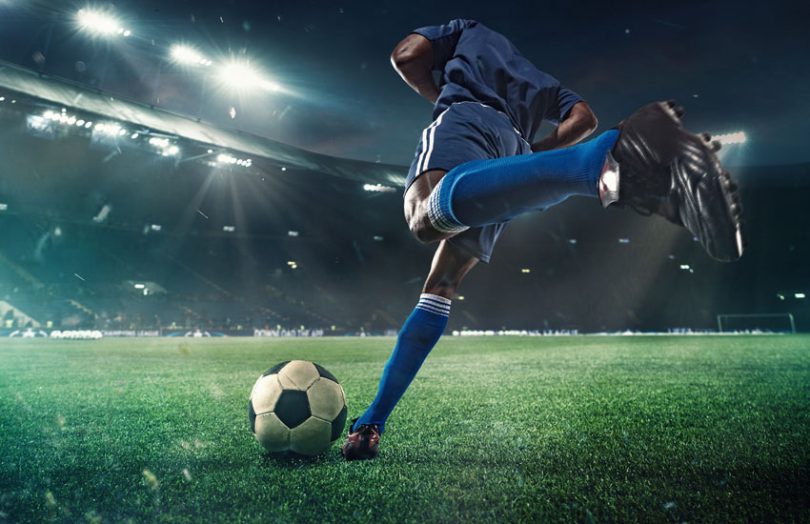Many factors influence the psychology behind gambling on soccer. Superstitions and cognitive biases have a profound influence on betting bettors’ decisions and choices. They are crucial in preventing irrational gambling.
The most well-known live-betting method is to bet on the team you believe is likely to prevail. Then, slow down and then abandon the earlier opportunities. This strategy can bring in huge payouts.
Cognitive biases
When it comes to betting on sports events Cognitive bias can alter your judgment and lead to uninformed decisions. This could lead to addictions which include gambling. If you’re able to be aware of and overcome these biases it will allow you to more effectively make decisions.
One of the most common cognitive biases in sports betting is confirmation bias. It makes people seek evidence that supports their current beliefs and ignores data that proves otherwise. The result is that players end up not noticing important information or misinterpreting it. This could be dangerous when betting on football. Additionally, the bias of confidence can cause bettors to ignore expert opinion or believe that their personal knowledge is superior when compared to the opinions of others. The result is poor decision-making and even financial losses. One way to counter this bias is to be more open and explore different viewpoints. The best way to stay clear of confusion and bias in bongdawap lich thi dau betting by being flexible.
The influence of emotions
The excitement for soccer is a powerful driving force that draws millions people to the sports betting arena. The excitement associated with predicting the outcome and the joy of winning and the agony of defeat will influence gamblers’ choices through ways they might not think of. This emotional impact can cause compulsive and problematic gambling.

Researchers studied the influence of emotional regulation motives as well as the trait’s affective impulsivity and impulsivity to bet on bets on sports in three cross-sectional studies following major sporting events: Superbowl LVI (Study 1), March Madness Final (Study 2) as well as the Union of European Football Association Champions League Final (Study 3). The results showed that participants who gambled in-play had higher thrills as compared to those who did not.
The secret to overcome subconscious biases associated with football betting is self-control. It requires disciplined thinking, logical analysis, and the ability to think. With self-control as a priority, players are able to adhere to their predetermined betting strategies as well as budgets. They also avoid the urge to chase loss.
Strategies for betting on football
The development of a soccer betting plan will help you make better decision when betting on the most viewed game. The best strategies involve a comprehensive analysis of player and team data, along with performance trends. The strategies include techniques which reduce cognitive biases including the “gambler’s fallacy”.
Another important strategy is to analyze matchups and identify the most promising bets. You should take into consideration your past performances at home and at the go along with head-to -head matches and table positions. It is also important to stay clear of over-betting which could lead to a significant loss.
Parlays are a type of strategy designed for intermediate gamblers that combine many bets together in one. But, it’s important to remember that the odds for a successful parlay are extremely low. It is recommended to limit parlays to at most three games. It is more likely that you will stand a higher chance to win if you limit parlays to three at least three games. Do not bet on teams that sacrifice early lead because these bets have usually small chances of winning.
Social causes
There are several aspects of society that affect people’s choices when it comes to betting on sports. Gender, age, gambler’s perception in the society, and impulsivity are all factors which can affect a person’s choice to place bets on sports. Erroneous beliefs and emotional involvement are also associated with sports betting issues. The factors mentioned above have been related to an increased chance of developing gambling-related disorders as per research.
It is a very popular activity for athletes who want to earn cash, relieve stress or just have a bit of fun. These activities may have adverse impacts on the physical and mental health of the athletes. These risks can be mitigated by restricting their involvement as well as seeking out help in the event of difficulties.
Several studies have examined correlates with sports betting, namely the sociodemographic characteristics, gambling-related variables, and co-occurring psychopathologies. The studies have not examined the risk factors for sports betting for those suffering from diagnosed with a clinical Gambling Disorder or Problematic Gambling Disorder (GD). So, this systematic review was conducted to gather pertinent clinical data on the relation between GD and sport-related gambling.
